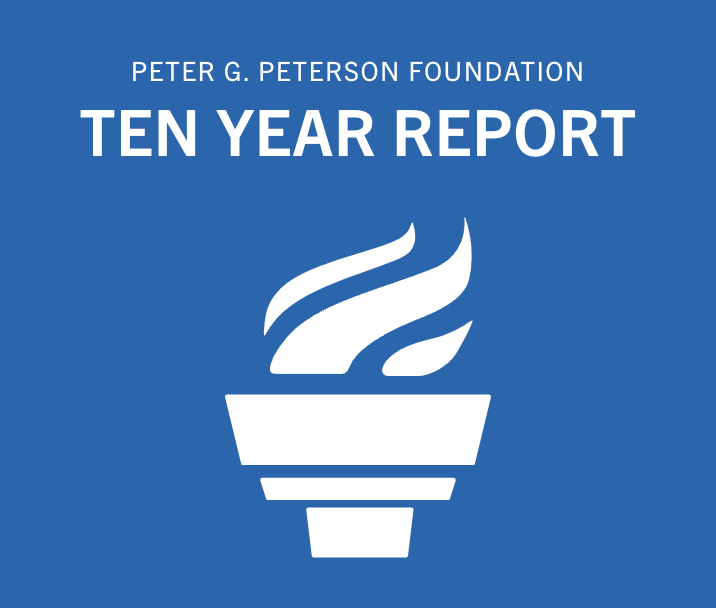About The Foundation
America’s economic strength is closely tied to our fiscal outlook. A strong fiscal foundation is essential for a healthy economy, with rising incomes, opportunity, and mobility, now and in the future. Our mission is to increase public awareness of the nature and urgency of the key fiscal challenges threatening America's future and to accelerate action on them. To address these challenges successfully, we work to bring Americans together to find and implement sensible, long-term solutions that transcend age, party lines, and ideological divides in order to achieve real results.
Founded by Pete Peterson and led by Chairman and CEO Michael Peterson, the Foundation works with leading policy experts, elected officials, and the public to build support for solutions to put America on a sustainable fiscal path. The Foundation engages in grant-making, partnerships and research to educate and involve Americans from a variety of perspectives.
Board of Directors
Our Board of Directors establishes the Foundation’s strategy and priorities and provides oversight of grants, projects, communications, and finances to ensure that our actions contribute effectively toward our mission.
Senior Leadership
Our Founder
Pete Peterson established the Peter G. Peterson Foundation in 2008 to raise awareness of America’s long-term fiscal challenges and promote solutions to ensure a better economic future. As a nonpartisan organization, the Foundation works to put America on a fiscally sustainable path and protect the American Dream that Pete was so fortunate to have lived.
Careers
Our Partner Organizations
Peterson Center on Healthcare
The Peterson Center on Healthcare is a non-profit organization dedicated to making higher quality, more affordable healthcare a reality for all Americans.
Peterson Solutions Fund
Peterson Solutions Fund is a nonpartisan 501(c)4 that engages in a range of initiatives to strengthen the current economic and democratic foundations of the United States, and build a brighter future for the next generation.
Peterson Philanthropies
The Peter G. Peterson Foundation, Peterson Center on Healthcare, and Peterson Solutions Fund are part of Peterson Philanthropies, a network of nonprofit, nonpartisan organizations engaging in a range of initiatives to strengthen the current economic and democratic foundations of the United States, and build a brighter future for the next generation.




